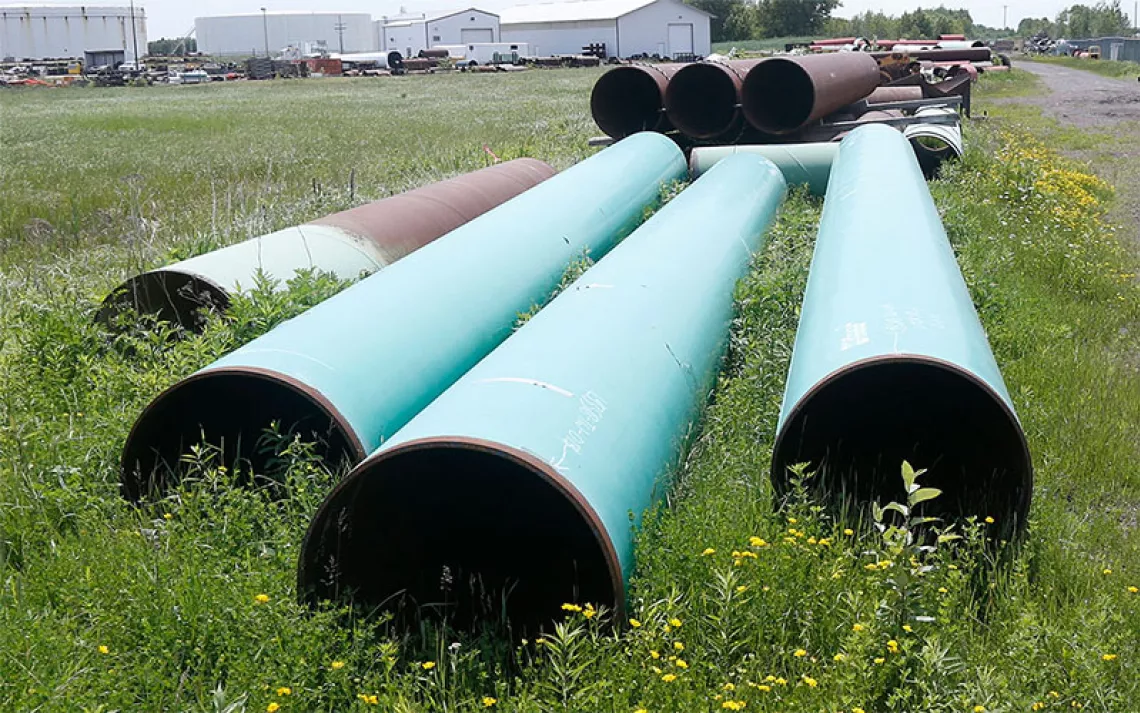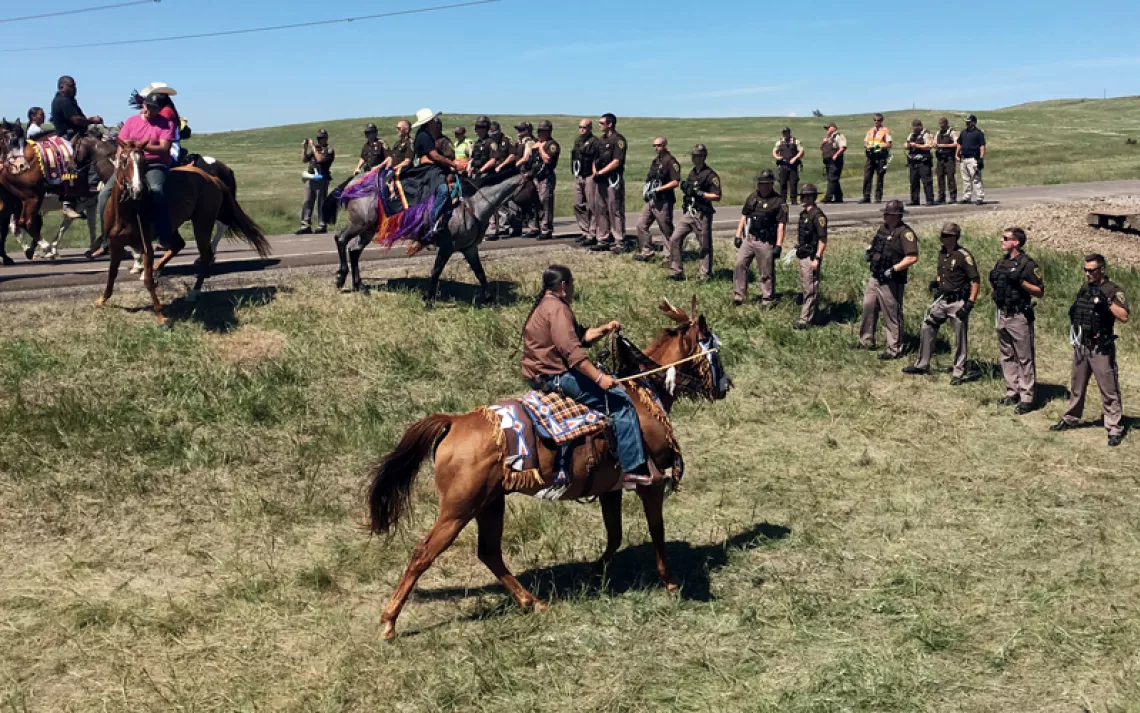Dispatch From the Line 3 Front Lines
A call to support the Indigenous resistance
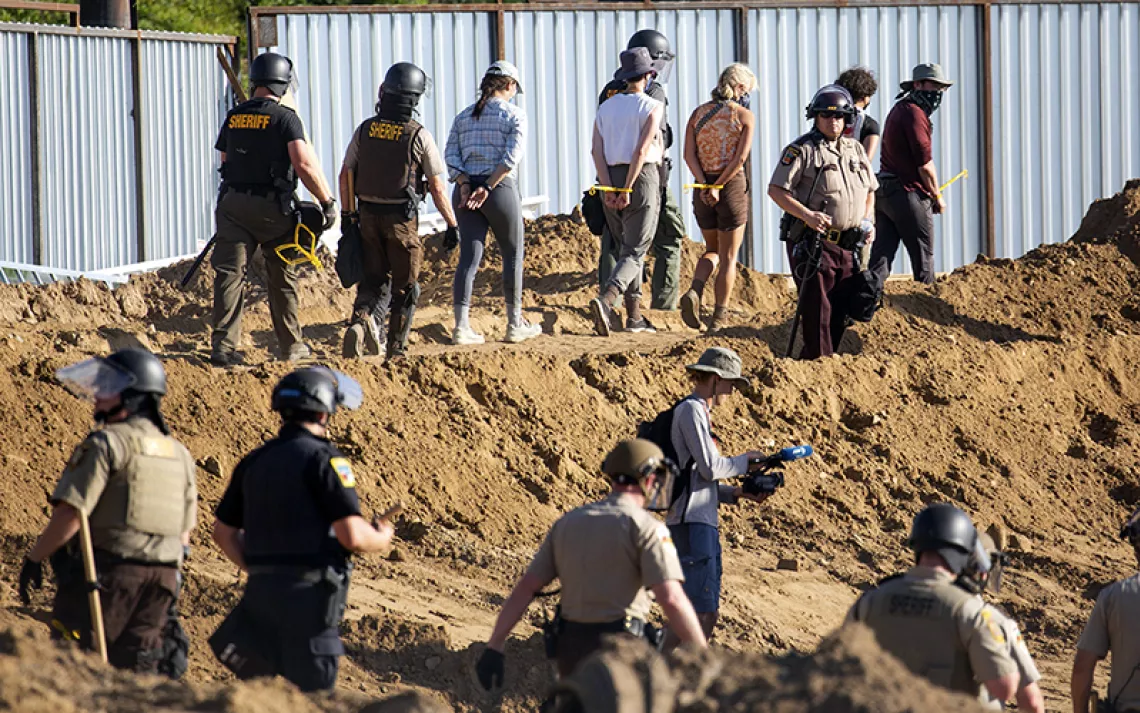
Activists are walked through an Enbridge Line 3 pump station on June 7 after being arrested near Park Rapids, Minnesota. | Photo by Evan Frost/Minnesota Public Radio via AP
The Indigenous-led struggle against the Line 3 Pipeline is at a critical point. Even as fires blaze and drought deepens across the West and floods devastate communities across the globe, Enbridge has been racing to get this dirty tar sands pipeline built. Our leaders must act now to prevent oil from ever flowing through it.
We need to stop building new fossil fuel infrastructure of any kind if we hope to get off the path toward climate catastrophe, and Line 3 is an especially problematic project because it would expand oil extraction in the tar sands of Canada. Every day it would carry 760,000 barrels of some of the world’s dirtiest oil through critical waterways, pristine wild rice lakes, and Anishinaabeg treaty territories. When tar sands oil spills, it’s almost impossible to clean up—and pipelines always spill, especially if they’re operated by a company with as dismal a safety record as Enbridge.
Thousands of Native peoples and non-Native allies have traveled to encampments in northern Minnesota to stop the pipeline from being completed since construction started in December. I joined them last week because I believe this is one of the most important environmental struggles in the country right now. That feeling only deepened as I met people who risked arrest and bodily harm to stop the pipeline through nonviolent civil disobedience. Seeing firsthand the rivers and forests threatened by the pipeline lit a fire in my belly too.
I came to see that the fight over Line 3 is about something bigger than just a single pipeline, disastrous as that pipeline might be. Much like the struggles over the Dakota Access and Keystone XL Pipelines, this fight is ultimately about who and what we value. Water protectors are asking our leaders to value clean water, a stable climate, and the Anishinaabe’s treaty rights and access to sacred wild rice over the right of a few powerful corporations to get even richer. They are pushing back against a legal, economic, and political system that places the interests of a few powerful corporations over those of people like you and me.
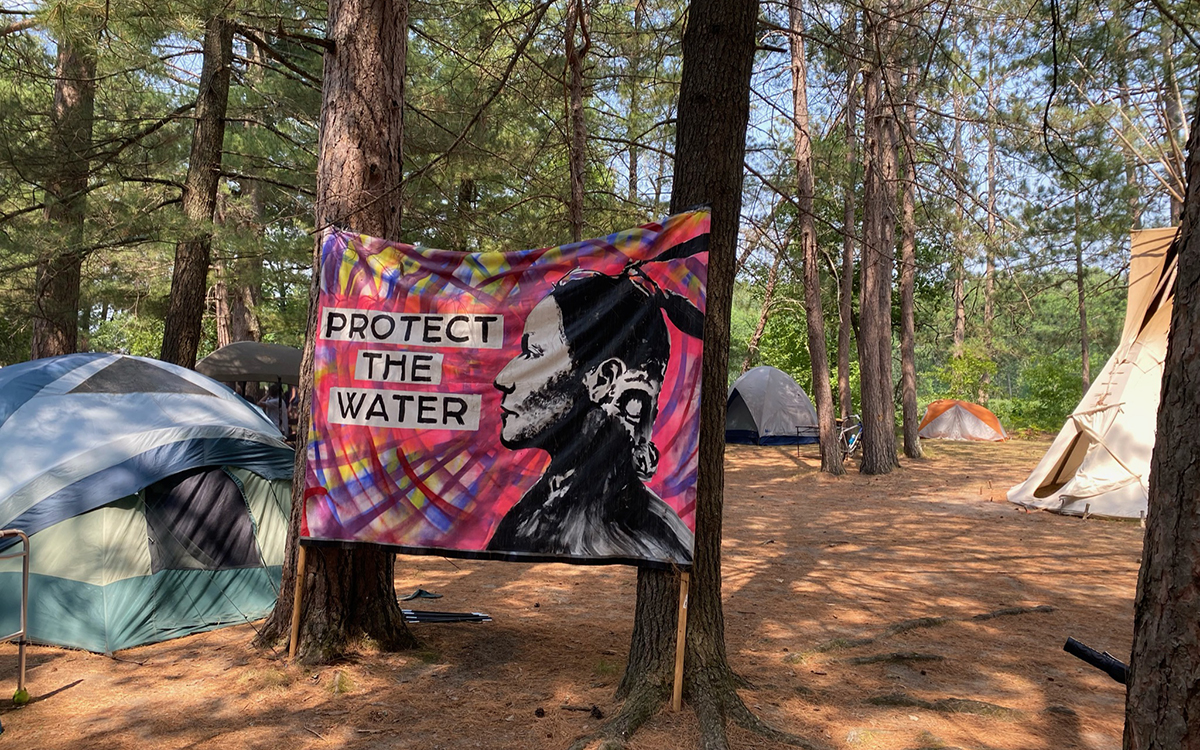
Photo courtesy of Mahyar Sorour
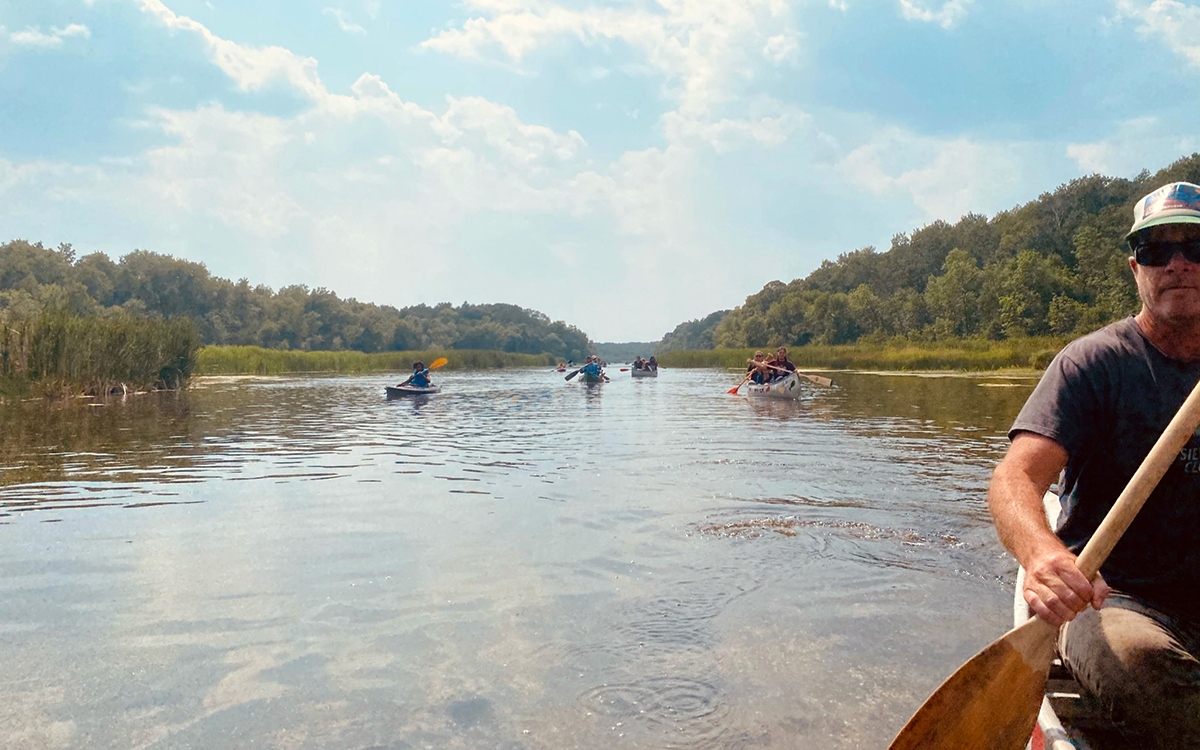
Photo courtesy of Mahyar Sorour
So far, the Army Corps of Engineers has been a key player in the unjust system that allowed Line 3 to move forward. When it issued Enbridge a Clean Water Act 404 permit during the Trump administration, allowing it to cross hundreds of waterways, it failed to consider the risks to our climate, to Indigenous peoples, and to our lands and waters in case of a spill. It refused to even carry out a comprehensive environmental impact statement so that these risks could be fully understood.
We are asking the army corps to revoke or suspend the 404 permit while a full environmental impact statement is completed. Longtime defender of Indigenous rights Jaime Pinkham, acting assistant secretary of the Army for Civil Works, has already shown willingness to buck Enbridge on another hazardous pipeline—Michigan’s Line 5. He can do so again by revoking Line 3's water permit and ensuring that the corps carries out a comprehensive environmental impact statement that takes into account the potentially horrific impacts a toxic tar sands pipeline spill would have on clean water, Indigenous rights, and the climate.
Despite the seriousness of this fight, the mood at the Line 3 camps was one of militant optimism. The activists recognized that they were part of a community of water protectors and earth defenders millions strong worldwide. The power of the people I met at the encampments —and their allies across the world—convinced me that we can defeat this pipeline, and all the pipelines to come. We can build a clean energy economy that works for all of us and be a nation that upholds treaties, because together, we are more powerful than corporate interests and rigged systems.
Join me in supporting Indigenous leadership in this fight to stop Line 3. Even if you can’t travel to Minnesota, you can help our community of water protectors by sending a message to Acting Assistant Secretary Pinkham, urging him to do everything in his power to stop this pipeline and all it represents.
 The Magazine of The Sierra Club
The Magazine of The Sierra Club


